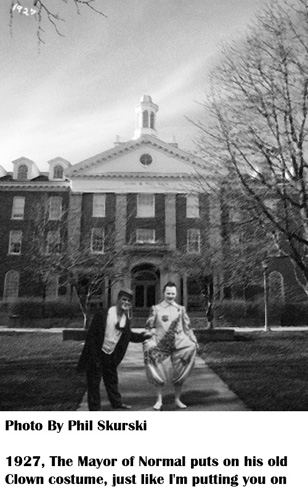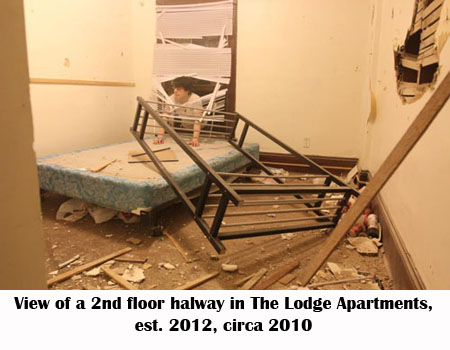Why So Normal?
Everyone gets made fun of who lives in a town called “Normal”. Most towns are elated at the idea of celebrating what makes them unique, sets them apart from the rest of the towns of the world. So why  call your town Normal? How is that going to let the population at large know how oh so very extra special you are? The plain and simple answer is: It won’t.
call your town Normal? How is that going to let the population at large know how oh so very extra special you are? The plain and simple answer is: It won’t.
So what does this mean about the town of Normal? Is humility so chief among its citizenry that the mere idea of calling their town anything else seems gauche? Suits the Americana dream of the Midwest just fine wouldn’t it?
When I first came to this town a friend’s father told me the story behind the name. I was…surprised. “Well, you know the town has a long history with the circus right?” He said to me. “What happened was, the town was founded by retired circus performers. They called it ‘Normal’ to be funny.” I always enjoyed the story, but I was never quite convinced of its authenticity. I became curious, how did Normal get to be called Normal? Well, as it turns out, it’s called Normal because a bunch of retired circus performers thought it would be funny.
In his book The Geek, His Chicken, and The Beard of His Wife, Dr. G Fran Samsa talks about the deep running sense of irony that is embedded in the town of Normal’s history. Recounting how, not only was the town founded by retired circus performers, but for many years was populated, and even run by retired circus performers.
“After the 1896 [mayor’s] election, incumbent mayor Richard Blevins held a parade to celebrate his continuing position. There were elephants in the streets, fire-eaters strolling down the sidewalks, and Blevins himself donned the Tarzan-like outfit of his strongman past and impressed voters by lifting the entire party’s platform above his head.” (Samsa 77). Blevins is perhaps the most noted political leaders of the town, and many considered him to be a mentor to Robert G. Bone. Bone himself thought very highly of Blevins, saying “Any strong man can lift an elephant, but Richard can lift a community. That’s real strength.” (Wartz 258).
Now the community is lead by more traditional politicians, but the mysterious force that drew in so many of the towns circus population is still present. Former resident and sociologist, Taryn Hart, speaks of an era where you could “walk the streets of Normal and run across David Foster Wallace  having coffee with W. Axl Rose,” (134) Perhaps it’s what has drawn so many other talented personalities to the area, be it through Illinois State University’s Fine Arts schools, or the various local and grass roots artistry. In his three-dimensional book on the subject, What G. Gordon Liddy had to say about the Circus, Poet/Resident Garland Halle expresses his lifelong belief in the town, including the brief time he believed it was sinking “I’ve lived here so long. /Sometimes… sometimes I believe /it is falling. /But only once /did I ever/ believe it was /sinking /deeper into the ground, /and that was the saddest day of my life.” (44). -- Phil Skurski
having coffee with W. Axl Rose,” (134) Perhaps it’s what has drawn so many other talented personalities to the area, be it through Illinois State University’s Fine Arts schools, or the various local and grass roots artistry. In his three-dimensional book on the subject, What G. Gordon Liddy had to say about the Circus, Poet/Resident Garland Halle expresses his lifelong belief in the town, including the brief time he believed it was sinking “I’ve lived here so long. /Sometimes… sometimes I believe /it is falling. /But only once /did I ever/ believe it was /sinking /deeper into the ground, /and that was the saddest day of my life.” (44). -- Phil Skurski